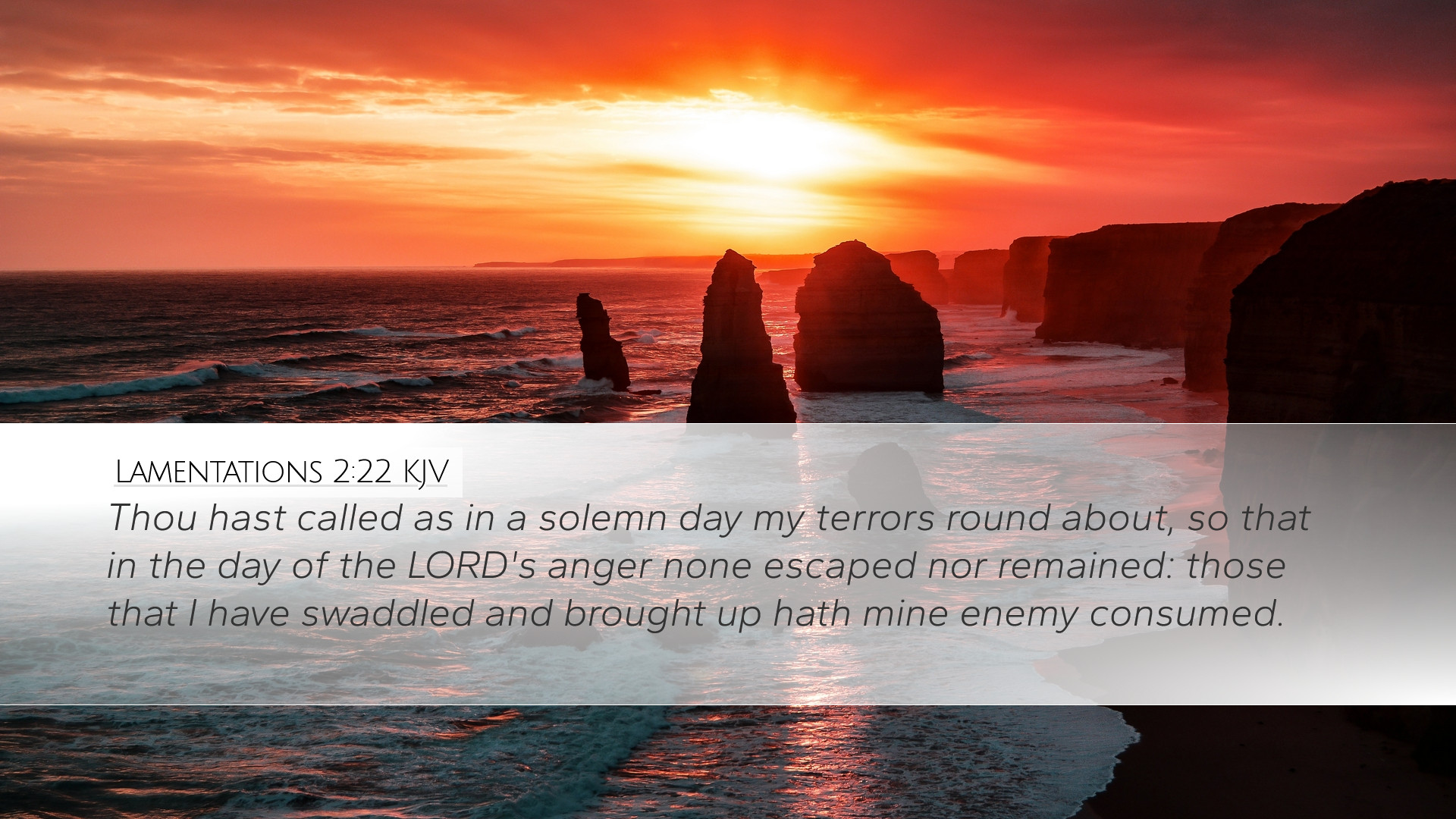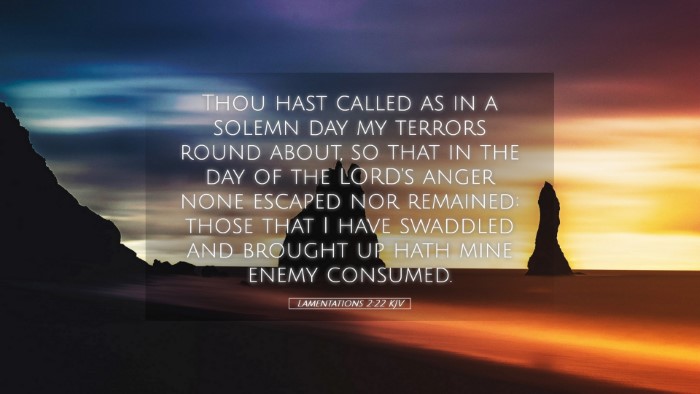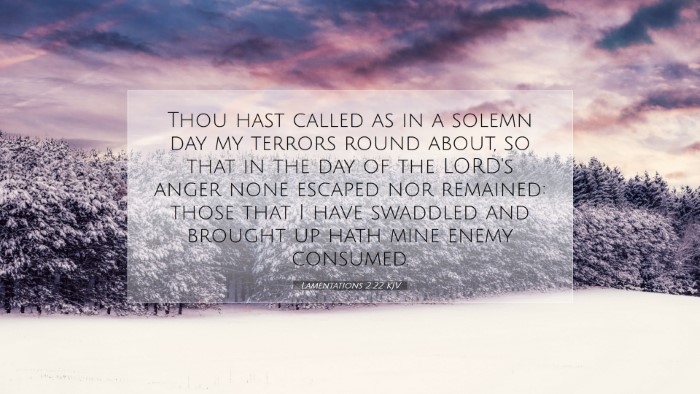Lamentations 2:22 Commentary
Verse Overview: Lamentations 2:22 states:
"You have called as in the day of a solemn festival my terrors on every side; and there was none that escaped or remained in the day of the Lord's anger."
This verse encapsulates the profound sense of despair and desolation felt by the people of Jerusalem after the fall of the city. It reflects the raw emotion and the penitential nature of the book, offering a glimpse into the catastrophic impact of sin and divine judgment.
Contextual Analysis
Understanding Lamentations requires a grasp of its historical and theological context. Written shortly after the destruction of Jerusalem in 586 B.C., this book is a poignant elegy mourning the lost city and the consequences of Israel's disobedience to God.
According to Matthew Henry, Lamentations serves as a national lament, where the city itself becomes a personified character, expressing grief for its calamities and loss. This chapter, like others in the book, reflects on both the physical destruction and the spiritual ramifications of turning away from God.
Verse Interpretation
Albert Barnes emphasizes the gravity of God's judgment as portrayed in this verse. The "terrors" referenced are not casual fears but rather overwhelming judgments that surround the city like a siege. The imagery depicts the complete abandonment of hope — with no refuge or escape during a time of great distress.
Adam Clarke additionally notes the communal aspect of suffering in this passage. The invocation of “solemn festivals” suggests that amidst their celebrations, calamity intrudes, illustrating how quickly divine displeasure can transgress human merriment. It is a grave reminder of accountability and the weight of God’s anger against His people.
Theological Reflections
This verse raises significant theological points regarding divine justice, mercy, and the consequences of sin. The unfolding events not only describe historical realities but also serve to teach future generations about the nature of God’s holiness and judgment.
-
Divine Retribution: The references to God's anger underscore a fundamental principle of divine retribution evident throughout Scripture (Proverbs 1:24-31). As noted by Barnes, God's holiness demands that sin be addressed, leading to inevitable judgment when transgressions abound.
-
Human Responsibility: Pastors and theologians are reminded through this verse of the essential teaching on human responsibility. The collective sin of Israel led to their plight, indicating a communal aspect of consequences and the necessity for corporate repentance (2 Chronicles 7:14).
-
Hope Amid Despair: Although the chapter focuses heavily on the destruction and suffering, it sets the stage for hope in later passages. Acknowledging the pain provides a pathway to restoration, echoing the reassurance found in the broader biblical narrative of redemption through Christ (Romans 5:3-5).
Pastoral Applications
For contemporary pastors, Lamentations 2:22 serves as a sobering reminder of the gravity of speaking truthfully about sin and its consequences. Emphasizing societal and individual accountability, it invites congregations to reflect on their alignment with God's purpose.
Some applicable themes include:
- Awareness of Spiritual Dangers: Educate parishioners about the subtlety of sin and its potential for leading people astray. These truths should drive congregational prayer and intercession.
- Ministry of Hope: While it is vital to acknowledge the failure and struggles of humanity, pastoral care should also emphasize God’s desire for restoration and healing, paralleling the hope found in the broader biblical context.
- Encouragement in Trials: Encourage believers to stand firm in their faith amid distressful times, drawing strength from the knowledge of God’s past faithfulness and sovereignty.
Conclusion
Lamentations 2:22 is a powerful examination of the intersection of sin, judgment, and communal sorrow. Through the guidance of commentaries from Matthew Henry, Albert Barnes, and Adam Clarke, we glean insights that remain relevant to each generation. The message serves as a cautionary tale emphasizing the need for repentance and the acknowledgment of God’s justice, while also paving the way for the hope found in both the Old and New Testaments.


